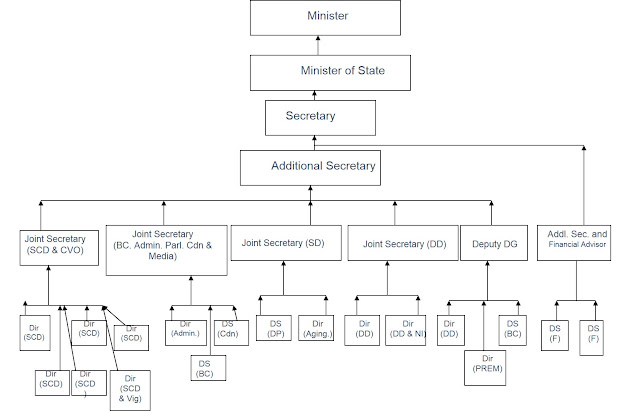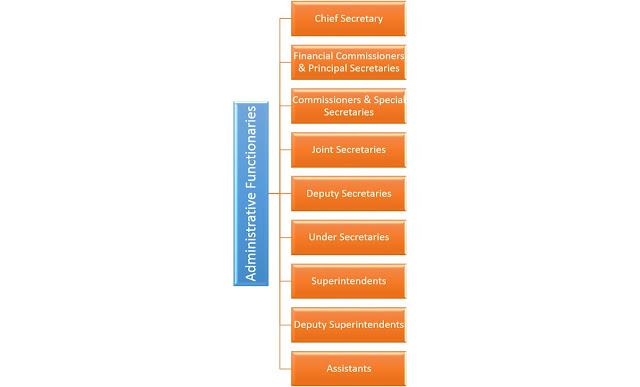The administration of accounts is a great job in itself. The Accounts
Administrators bear the responsibilities of supervising the accounting
functions at their work-space including keeping accounts through proper
book-keeping method, deduction of taxes, invoicing, and management of
inventory. In public sector organizations, the role of Accounts Administrators
becomes more tedious with the intervention of bureaucrats and dealing public in
addition to supervising the accounting operations. They trust upon the
accounting staff and assign duties to the staff members. Around the world,
there is huge demand of Accounts Administrators and the category includes the
Accounts officers and Auditors. Even in India, most of the students are opting
engineering and science streams after matriculation, and the area of finance,
accounts is becoming more lucrative now-a-days. Due to globalization and
growing Indian economy, it is must to have an exposure to the various
applications relating to accounts administration.
(i)
Monitoring bills, receipts, and expenditures:
The Accounts Administrators are responsible for
receiving and verifying billing (e-billing) and requisitions (invoices) for
goods and services. They ensure that accounts receivable and payable are taken
care of in a timely manner and they contact clients (citizens) and vendors
(sellers) to achieve and accomplish the desired operations.
(ii) Analyzing data
and extracting information
It is required to ensure the compliance of financial rules, policies, and
procedures in financial transactions. In order to ensure compliance, it is
required to analyze the transactions keeping in view the required information.
The Accounts Administrators use the analyzed information as basis of financial
decisions.
(iii) Keeping
Organized Financial Records
It is duty of the Accounts Administrator to keep the financial records as
per accounting standards. In public sector organizations, the standards are
formulated by Government Accounting Standards Advisory Board (GASAB), working
under Comptroller and Auditor General of India.
(iv) Invoicing
and Tracking of Vouchers
The Government of India is transforming the manual vouchers into digital
vouchers and the e-sign implementation is also under progress. Proper invoicing,
coding and processing of vouchers is must for ensuring the accuracy of
accounting entries. Tracking invoices, digitalizing vouchers and detecting
financial irregularities is major duty of an Accounts Administrator.
(v) Supporting
Accounting Staff and inculcating team-spirit
The Accounts Administrator requires leadership skills to inculcate
team-spirit among the accounting staff working under his/her control. The
accounting staff requires support to work independently for ensuring fair
accounting principles to be followed in recording financial transactions.
(i) Payroll Administration(ii) Monitoring of Expenses as per allocated funds or cash budget(iii) Consistent watch over maintenance of Cash Book(iv) Proficiency in Accounting Software(v) Managerial Skills including Supervision, Negotiation, and Leadership(vi) Auditing(vii) Public Speaking(viii) Information Technology (IT) Skills(ix) Spreadsheet Modeling(x) Quality and Financial Control
Challenges in front of
Accounts Administrators:
The Accounts
Administrators require playing various roles for the success of organization.
From purchase procedures to enforcement of financial control mechanisms, they
require to stay firm in controlling cost of operations. The first challenges is
to ensure fair purchases at the workspace, the pooling and malpractices by the
contractors and vendors with involving senior officers or staff or ministers or
other influential people make their job hard. Secondly, they require keeping
accuracy in the vouchers as well as in entries of vouchers in financial books,
the unusual expenses if required to be adjusted by management, their role to
keep the vouchers and entry safe, becomes tedious. A single mistake can lead to
bursting of whole scam in light like in case of Punjab National Bank scam, 'Rotomac' Scam, Coal
Scam and Scam in Common Wealth Games. In today’s age of governance through
Citizen Charter, C.M. Window, Right to Information Act etc; further made
their role tough and difficult.
*Copyright
© 2018 Dr. Lalit Kumar. All rights reserved. Dr. Lalit Kumar is a free-lance
writer with publication of research papers in various esteemed and reputed
journals. Presently he is working as Course Director (Faculty of Financial
Management), HIPA, Gurugram (Delhi-NCR), India (Asia).
You might also be interested in reading the following:
(i) Monitoring bills, receipts, and expenditures:
The Accounts Administrators are responsible for receiving and verifying billing (e-billing) and requisitions (invoices) for goods and services. They ensure that accounts receivable and payable are taken care of in a timely manner and they contact clients (citizens) and vendors (sellers) to achieve and accomplish the desired operations.(ii) Analyzing data and extracting information
(iii) Keeping Organized Financial Records
(iv) Invoicing and Tracking of Vouchers
(v) Supporting Accounting Staff and inculcating team-spirit
(i) Payroll Administration(ii) Monitoring of Expenses as per allocated funds or cash budget(iii) Consistent watch over maintenance of Cash Book(iv) Proficiency in Accounting Software(v) Managerial Skills including Supervision, Negotiation, and Leadership(vi) Auditing(vii) Public Speaking(viii) Information Technology (IT) Skills(ix) Spreadsheet Modeling(x) Quality and Financial Control
Challenges in front of Accounts Administrators:
The Accounts Administrators require playing various roles for the success of organization. From purchase procedures to enforcement of financial control mechanisms, they require to stay firm in controlling cost of operations. The first challenges is to ensure fair purchases at the workspace, the pooling and malpractices by the contractors and vendors with involving senior officers or staff or ministers or other influential people make their job hard. Secondly, they require keeping accuracy in the vouchers as well as in entries of vouchers in financial books, the unusual expenses if required to be adjusted by management, their role to keep the vouchers and entry safe, becomes tedious. A single mistake can lead to bursting of whole scam in light like in case of Punjab National Bank scam, 'Rotomac' Scam, Coal Scam and Scam in Common Wealth Games. In today’s age of governance through Citizen Charter, C.M. Window, Right to Information Act etc; further made their role tough and difficult.
*Copyright
© 2018 Dr. Lalit Kumar. All rights reserved. Dr. Lalit Kumar is a free-lance
writer with publication of research papers in various esteemed and reputed
journals. Presently he is working as Course Director (Faculty of Financial
Management), HIPA, Gurugram (Delhi-NCR), India (Asia).



















